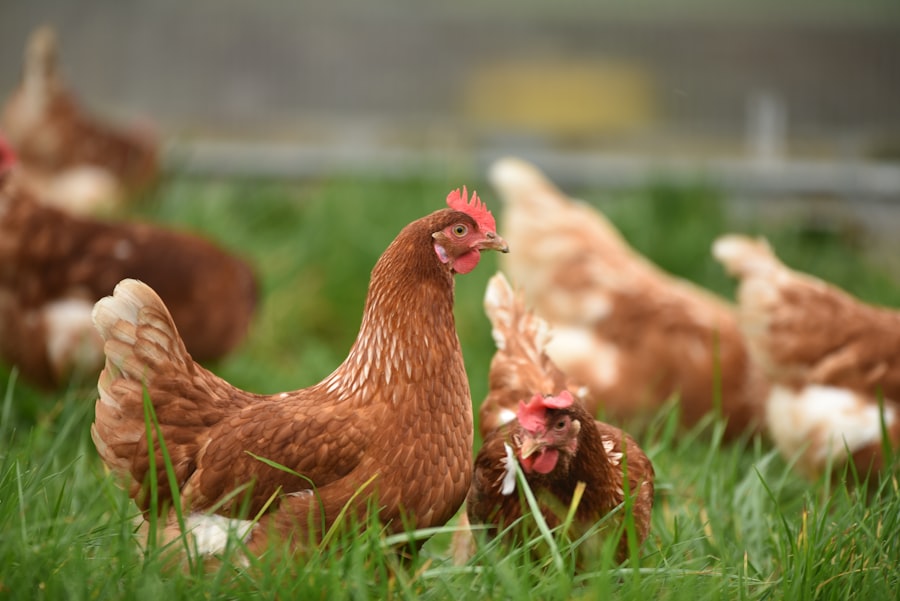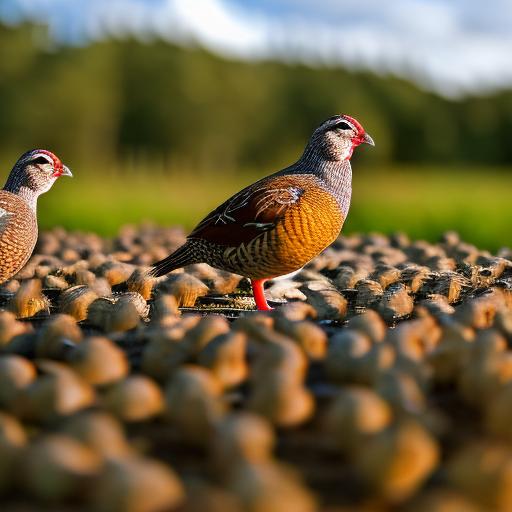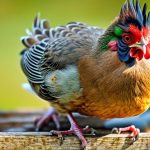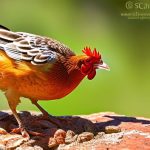Keeping quail with chickens is a popular practice among backyard poultry enthusiasts. It offers several benefits, including additional eggs and meat, pest control, and companionship for both species. However, there are also differences between quail and chickens that need to be considered. In this article, we will explore the benefits of keeping quail with chickens, the differences between the two species, and provide guidance on choosing the right coop, setting up the coop, feeding both species together, managing their health, nesting requirements, and egg production.
Key Takeaways
- Keeping quail with chickens can provide a variety of benefits, including increased egg production and pest control.
- Quail and chickens have different needs and behaviors, so it’s important to understand their differences before housing them together.
- When choosing a chicken coop for quail, consider the size and spacing of the wire mesh to ensure the safety of the smaller birds.
- Setting up the coop for both quail and chickens requires providing separate areas for nesting and roosting, as well as ensuring adequate space and ventilation.
- Feeding quail and chickens together can be done with some adjustments to their diets, but it’s important to monitor their health and adjust as needed.
Benefits of keeping quail with chickens
One of the main benefits of keeping quail with chickens is the additional eggs and meat they provide. Quail are prolific layers and can produce up to 300 eggs per year. Their eggs are smaller than chicken eggs but are considered a delicacy by many due to their rich flavor. Quail meat is also highly sought after for its tenderness and unique taste.
Another benefit of keeping quail with chickens is pest control. Quail are excellent foragers and can help control pests in the coop, such as flies, ticks, and small insects. They will eagerly eat these pests, reducing the need for chemical pest control methods.
Additionally, chickens and quail can provide companionship for each other. Chickens are social animals and enjoy the company of other birds. Having quail in the flock can provide entertainment and stimulation for the chickens. Similarly, quail can benefit from being part of a larger group and may feel more secure in the presence of chickens.
Differences between quail and chickens
While there are many benefits to keeping quail with chickens, it is important to consider the differences between the two species. Quail are smaller than chickens and require less space. They can be housed in smaller coops or even in converted rabbit hutches or dog crates. Chickens, on the other hand, require more space and should have enough room to roam and forage.
Quail also have different dietary needs than chickens. They require a higher protein diet, which can be met with game bird feed or a mix of grains and insects. Chickens, on the other hand, require a balanced diet that includes grains, protein, and calcium for egg production. It is important to provide separate feeding areas for quail and chickens to ensure they are getting the appropriate nutrition.
Another difference between quail and chickens is their behavior. Quail are more flighty and can be harder to handle than chickens. They are known for their quick movements and ability to fly short distances. This can make them more challenging to catch or handle compared to chickens, which are generally more docile.
Choosing the right chicken coop for quail
When keeping quail with chickens, it is important to choose the right chicken coop that can accommodate both species. There are different types of coops available, including traditional wooden coops, mobile coops, and converted structures like sheds or barns.
For quail, a smaller coop or converted structure can be suitable. Quail do not require as much space as chickens and can be housed in smaller enclosures. However, it is important to provide enough space for them to move around comfortably.
It is also important to provide separate nesting areas for quail. Quail prefer to nest on the ground rather than in elevated nesting boxes like chickens. Providing a separate area with suitable nesting material will ensure that the quail have a comfortable place to lay their eggs.
Setting up the coop for quail and chickens
When setting up the coop for quail and chickens, it is important to provide enough space for both species. Chickens require at least 4 square feet of space per bird, while quail only require about 1 square foot per bird. Providing enough space will prevent overcrowding and reduce the risk of aggression or stress.
It is also important to provide separate feeding and watering areas for quail and chickens. This will ensure that each species has access to their specific dietary needs without competition or contamination. Separate feeding and watering areas can be achieved by using different feeders and waterers or by providing separate sections within the coop.
Feeding quail and chickens together

Feeding quail and chickens together can be challenging due to their different dietary needs. Quail require a higher protein diet, while chickens require a balanced diet that includes grains, protein, and calcium for egg production.
To meet the dietary needs of both species, it is important to provide a balanced diet for both. This can be achieved by offering game bird feed for the quail and a mix of grains, protein, and calcium sources for the chickens. It is also important to monitor the feed consumption of each species to ensure they are getting the appropriate nutrition.
Health concerns when keeping quail and chickens together
When keeping quail and chickens together, there is a risk of disease transmission between the two species. Quail are more susceptible to certain diseases, such as coccidiosis, which can be transmitted to chickens. It is important to keep the coop clean and provide proper ventilation to reduce the risk of disease transmission.
Regular cleaning of the coop, including removing droppings and replacing bedding, will help maintain a healthy environment for both species. Providing proper ventilation will help prevent the buildup of ammonia and moisture, which can contribute to respiratory issues in both quail and chickens.
Nesting requirements for quail and chickens
Quail and chickens have different nesting requirements. Quail prefer to nest on the ground, while chickens prefer elevated nesting boxes. It is important to provide enough nesting boxes for both species to ensure they have a comfortable place to lay their eggs.
For quail, providing a separate area with suitable nesting material, such as straw or shavings, will encourage them to lay their eggs in a designated area. For chickens, providing elevated nesting boxes with soft bedding material will encourage them to lay their eggs in a clean and secure location.
Managing egg production from quail and chickens
Quail and chickens have different egg production rates. Quail are prolific layers and can produce up to 300 eggs per year, while chickens can produce around 200-300 eggs per year, depending on the breed.
To manage egg production from quail and chickens, it is important to collect eggs regularly and separate them by species. This will make it easier to track egg production and ensure that each species is getting the appropriate care and attention.
Conclusion and final thoughts
Keeping quail with chickens can offer several benefits, including additional eggs and meat, pest control, and companionship for both species. However, it is important to carefully consider the differences between quail and chickens and provide suitable housing, feeding, and nesting arrangements for both species.
Before deciding to keep quail with chickens, it is important to do thorough research and consult with experienced poultry keepers. Each flock is unique, and what works for one may not work for another. By taking the time to understand the needs of both quail and chickens, you can create a harmonious environment that benefits both species.
If you’re considering keeping quail with chickens, it’s important to understand the best practices for creating a suitable living environment. One crucial aspect is providing the right kind of coop for your chickens. In a helpful article by Poultry Wizard, they discuss the different types of coops available and which one is best suited for chickens. To learn more about this topic, check out their article on what kind of coop is best for chickens. It’s a valuable resource that will guide you in creating a safe and comfortable space for your feathered friends.
FAQs
What are quails?
Quails are small game birds that are often kept for their meat and eggs. They are known for their small size, fast growth, and high egg production.
Can quails be kept with chickens?
Yes, quails can be kept with chickens. However, it is important to ensure that the quails have their own space and are not overcrowded with the chickens.
What are the benefits of keeping quails with chickens?
Keeping quails with chickens can provide a number of benefits, including increased egg production, pest control, and a more diverse and interesting flock.
What are the challenges of keeping quails with chickens?
One of the main challenges of keeping quails with chickens is ensuring that the quails have their own space and are not bullied or overcrowded by the chickens. Additionally, quails have different dietary needs than chickens, so it is important to provide them with their own feed.
What should I consider before keeping quails with chickens?
Before keeping quails with chickens, it is important to consider the space available, the number of birds you want to keep, and the dietary needs of both species. It is also important to ensure that the birds are compatible and will not harm each other.
Meet Walter, the feathered-friend fanatic of Florida! Nestled in the sunshine state, Walter struts through life with his feathered companions, clucking his way to happiness. With a coop that’s fancier than a five-star hotel, he’s the Don Juan of the chicken world. When he’s not teaching his hens to do the cha-cha, you’ll find him in a heated debate with his prized rooster, Sir Clucks-a-Lot. Walter’s poultry passion is no yolk; he’s the sunny-side-up guy you never knew you needed in your flock of friends!







